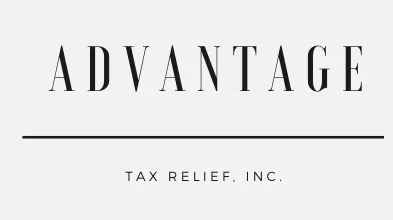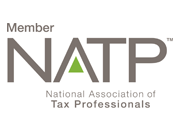Blog Layout
Attention Small Business Owners
July 6, 2022
Do You Owe Payroll Taxes? Here’s What To Do.
Unpaid payroll taxes are a serious matter to the IRS and are some of the worst kind of back taxes you can owe. If you’re a small business owner with a payroll tax problem, read on to learn what you can do to avoid the IRS crippling your business or worse, shut your business down completely.
Already in payroll tax trouble? Contact us
to schedule a free, no-obligation consultation and let’s get your payroll tax issue resolved.
Why Small Business Owners Get Into Payroll Tax Trouble In The First Place
It’s hard being a small business owner today, trying to pay your employees their paychecks every week, and pay the IRS all those payroll taxes!
A lot of times when money is short, you pay the employees first. It’s a natural thing to do—you need to take care of your employees, even if you have to skip paying yourself! Besides, if you don’t pay them, they’ll quit and you will have to hire new people all the time.
It can seem easy to “just pay the 941 taxes next pay period” and give yourself a little cash flow cushion, but skipping paying your employees payroll tax deposits is never a good idea.
What happens too often is 1 pay period turns into 2, and 3, and 4, and eventually you’re so deep in payroll tax debt that the only thing you want to do is completely ignore your problem.
Except the IRS doesn’t care about your financial problems. They just want you to pay your payroll taxes!
The IRS doesn’t care if you can’t pay your employees. They don’t care if they put your employees out on the street. They don’t care if you can’t collect your receivables. They don’t care if one of your largest and best customers just went “belly-up”. All they care about is you have money that belongs to them and they will do whatever they have to, even put you out of business, to collect it. They don’t care who you are, or even what business you are in.
Penalties are The Kiss Of Death When It Comes To Back Payroll Taxes
Penalties for failing to file and pay your payroll taxes are the “kiss of death” for any small business owner. They tack on penalties totaling 33% in just the first 16 days! And it doesn’t stop there. The IRS adds interest on top of the penalties too. It is not uncommon that a payroll tax liability doubles in short order. And if you don’t pay them or work something out, they will shut you down! It’s much less work for the Revenue Officer, as most are lazy, to simply close you down than work out an arrangement with you.
The IRS Will Collect Or They Will Shut You Down
It’s as simple as that. The IRS is the most brutal collection agency on the planet. They have more authority than the President of the United States! And they have all the ways and means to do whatever it takes to collect what’s owed to them. You didn’t wake up in the morning, go to work, and say to yourself, I’m not paying my payroll taxes because you didn’t want to. The money simply wasn’t there. It’s not your fault. One week you’re short of cash. It was a slow week, a customer’s check bounced, or any number of legitimate reasons that just prevent you from paying the IRS. You’re a good person. You figure you will make it up the next week. But then next week comes and goes, and you realize you still don’t have enough money to make that payroll tax deposit. And then the entire situation starts “snow-balling” into an avalanche.
Should You Call The IRS To Get Your Payroll Issue Fixed?
If you were to call the IRS, and were able to get through after waiting on “hold” for an hour or two, and try to explain your situation—you might as well have a conversation with the wall—because they don’t care. The IRS representative that you’re talking to probably makes less than $20 an hour, and is poorly trained. Do you think they ever had to make a payroll in their life? Do you think they know what it’s like running a small business? Do you really think they will have any sympathy for you?
Not only is the answer “NO” but they can also dictate the fate of your case. What they will try to get, while you’re on the phone, is all your personal and financial information. They want to know where you bank; they’ll want to know all about your customers who owe you money, they’ll want to know about the value of all your assets, like your home, cars, motorcycles, etc. Why? Because now they have all the information they need to levy your bank accounts, take your receivables and seize your property.
Now that you know you shouldn’t be talking to the IRS because they are not going to help you, you might be wondering what you should do? Where should you turn for help? The smartest thing you can do to protect your business and family is to have someone represent you—someone who deals with the IRS for a living. You need to get help—but not just from anyone—you need help from someone who is an experienced competent professional, and deals with the IRS every day, helping small business owners keep their businesses and settle IRS payroll tax problems.
If you were charged with a serious misdemeanor or felony, would you go to court without a lawyer? You don’t want to represent yourself before the IRS either. You need professional, expert representation. Reach out to our firm
and we’ll schedule a no-obligation confidential consultation to explain your options to permanently resolve your tax problem. Our expert tax resolution professionals know how to navigate the IRS maze.
Once you decide to retain us, we step into your shoes and protect you from the IRS’s abusive tactics. We take over all communications from the IRS on your behalf. You don’t have to speak with the IRS anymore. We do. Not only that—they are not allowed to talk to you once you’ve signed our Power of Attorney! Once they realize you have someone on your side protecting you, who knows their tricks as well as they do, they have to step back and follow the law. Not only can we protect you from the IRS harassing you, calling you, and showing up at your front door, we can get those penalties reduced and in some cases completely removed!
Contact us now
and let's get your payroll tax issue resolved!

By 7066766659
•
December 30, 2024
Receiving an LT11 letter from the IRS can be incredibly unsettling. This notice is a serious warning that the IRS is prepared to take tough action to collect unpaid taxes. If you’ve received this letter, it’s important to understand what it means and why you need to act quickly. What is an LT11 Letter? An LT11 letter, also known as the "Final Notice of Intent to Levy and Notice of Your Right to a Hearing," is sent by the IRS when you have unpaid taxes and haven’t responded to previous notices. This letter means the IRS is ready to levy your assets, which means they can legally take your property to pay off the tax debt. This could include money in your bank accounts, your wages, your home, or other valuable belongings. What Can Happen If You Ignore It? If you ignore an LT11 letter, the IRS can take serious actions, such as: Seizing Money from Your Bank Account: The IRS can freeze your bank accounts and take the money. Garnishing Your Wages: Your employer will have to send a portion of your paycheck to the IRS. Taking Your Property: The IRS can seize your house, car, or other valuable items. Damaging Your Credit Score: A levy or lien can hurt your credit score, making it hard to get loans or credit in the future. Why You Need to Act Quickly The LT11 letter gives you only 30 days to respond. Within this time, you have the right to request a Collection Due Process (CDP) hearing. This hearing is your chance to dispute the levy action, propose a different payment plan, or challenge the amount you owe. If you don’t act within these 30 days, the IRS will start the levy process, and your options will be very limited. The Importance of Professional Help Dealing with the IRS and resolving tax problems can be very complex, and trying to handle it on your own can lead to mistakes that might make your situation worse. A tax resolution professional has the knowledge and experience to help you navigate this challenging process. Benefits of Professional Help: Expert Negotiation: A professional can negotiate with the IRS on your behalf to secure the best possible terms. Strategic Planning: They can develop a plan to resolve your tax issues without causing financial hardship. Legal Protection: A professional ensures that your rights are protected throughout the process. If you’ve received an LT11 letter, don’t wait another moment. Contact Advantage Tax Relief immediately at 630-773-3200. Advantage Tax Relief is a skilled tax resolution firm that can help you navigate your tax issues and achieve the best possible outcome. Call Advantage Tax Relief NOW at 630-773-3200 to prevent the IRS from taking your hard-earned money and assets.

November 25, 2024
What is a CP523 Notice from the IRS? Receiving a CP523 notice is a serious matter. It’s an official communication from the IRS informing you that your tax installment agreement has been canceled. This typically happens when you fail to make payments or violate the terms of your repayment plan. If you’ve gotten this notice, it means the IRS is prepared to take further action, so it’s critical to understand what it means for your situation. Why You Need to Act Now A CP523 notice signals that your repayment agreement is no longer in effect. Without an active installment plan, the IRS has the authority to initiate collection actions against you, including: Wage Garnishments: The IRS can garnish your wages without additional warning. Bank Levies: They may seize funds directly from your bank account. Liens on Property: The IRS could place liens on your property, affecting your ability to sell or refinance. Ignoring the CP523 notice can lead to significant financial consequences, such as: Immediate Tax Payment Demand: You could be required to pay your entire outstanding balance in full, which can be overwhelming. Escalating Collection Efforts: The IRS can move quickly to enforce collection actions if you don’t address the notice in a timely manner. Damage to Your Credit: Unresolved tax issues can severely impact your credit, making it difficult to secure loans, credit, or even housing. Steps to Take if You Receive a CP523 Notice While receiving a CP523 notice can feel intimidating, there are clear actions you can take to prevent further issues: 1. Respond Promptly: Time is critical. The sooner you take action, the better your chances of avoiding severe consequences. 2. Review the Notice Carefully: Understand the reason your installment agreement was canceled, the amount you owe, and any deadlines for taking action. 3. Evaluate Your Financial Situation: Take stock of your finances and explore your options for resolving your debt. This might include reinstating your installment agreement, negotiating new terms, or looking into other tax relief solutions. 4. Contact the IRS: Reach out to the IRS as soon as possible to discuss your situation and find out what steps you need to take to get back on track. 5. Consider Professional Help: Navigating the IRS system can be complex, but you don’t have to do it alone. A tax professional like John Bruszewski at Advantage Tax Relief can help you negotiate with the IRS, review your options, and work toward a favorable outcome. Don’t Wait – Get Help Now Ignoring a CP523 notice can make matters worse. It's essential to act quickly and seek guidance from a trusted expert. John Bruszewski at Advantage Tax Relief is here to help you understand your options, negotiate on your behalf, and guide you through the process. Call for a Free Consultation Don’t wait until it’s too late. Call Advantage Tax Relief today at 630-773-3200 for a risk-free consultation and get the help you need to resolve your tax issues and protect your financial future.
,
This is a placeholder for the Yext Knolwedge Tags. This message will not appear on the live site, but only within the editor. The Yext Knowledge Tags are successfully installed and will be added to the website.
This is a placeholder for the Yext Knolwedge Tags. This message will not appear on the live site, but only within the editor. The Yext Knowledge Tags are successfully installed and will be added to the website.
This is a placeholder for the Yext Knolwedge Tags. This message will not appear on the live site, but only within the editor. The Yext Knowledge Tags are successfully installed and will be added to the website.
COVID-19 update:
Advantage Tax Relief, Inc. is open and helping clients via no-cost initial telephone consultations, no- contact document drop-offs, and electronic communications throughout the process.
Hi. Do you need any help?
Privacy Policy
| Do Not Share My Information
| Conditions of Use
| Notice and Take Down Policy
| Website Accessibility Policy
© 2025
The content on this website is owned by us and our licensors. Do not copy any content (including images) without our consent.








Share On: